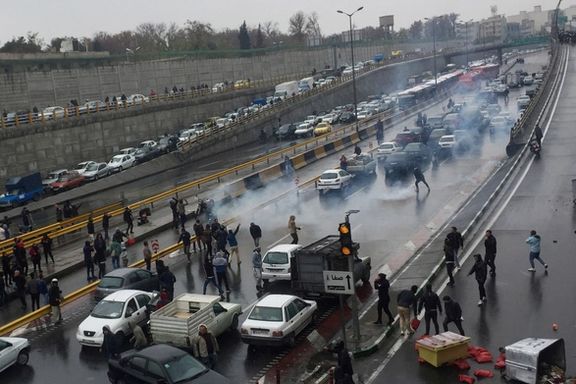Iran signals preparation for potential unrest

Iran's energy-rich government is bracing for potential unrest amid rolling blackouts and rising gasoline prices, with judicial, security and intelligence services briefed to be ready for a response.

Iran's energy-rich government is bracing for potential unrest amid rolling blackouts and rising gasoline prices, with judicial, security and intelligence services briefed to be ready for a response.
On Monday, the head of Iran’s judiciary instructed the Attorney General and provincial prosecutors to coordinate with intelligence, security, and law enforcement agencies to prevent unrest, sensing widespread public dissatisfaction over power and gas outages.
Speaking during a meeting of the Supreme Judicial Council, Gholam-Hossein Mohseni Ejei stated, “The Attorney General and prosecutors across the country, in direct cooperation with the intelligence, security, and law enforcement agencies, should take all appropriate measures and arrangements to stabilize and strengthen the security of the people and citizens, and, as in the past, and even with greater firmness, take the relevant measures so that the enemy's conspiracy to create insecurity…is neutralized."
Ejei, widely recognized as one of Iran’s most prominent human rights violators, warned President Masoud Pezeshkian's administration that the recent wave of nationwide shutdowns caused by air pollution and the government’s failure to meet energy demands could spell unrest. People are struggling to heat their homes in the bitter cold while the cost of living is soaring amid the worst economic recession in the Islamic Republic's history.
The government is bracing itself for action reminiscent of the 2019 and 2022 protests in which hundreds of Iranians were killed by security forces and tens of thousands were arrested.
Facing a 30% shortfall in natural gas supplies from its Persian Gulf fields, the Iranian government has turned to burning the highly polluting heavy oil mazut, shrouding Tehran and other cities in dense smog.
Years of under-investment in the energy sector, exasperated by technology sanctions by the West, has pushed Iran into a downward spiral in natural gas production.
Gas pressure is falling in its main production field in the Persian Gulf that it shares with Qatar. Only the largest Western oil companies have the technological capability to remedy the situation.
The Pezeshkian government has limited options to address the crisis, apart from a complete overhaul of the country’s foreign policy and opening its economy to global engagement.
The latest wave of economic and public sector shutdowns, which began on December 9, has led to widespread closures of schools, universities, and government offices across many provinces.
The electricity and fuel crisis, combined with a sharp decline in the national currency’s value since September, has fueled an increasingly volatile public mood.
Iranians are facing daily price hikes while also witnessing a series of regional setbacks for the government. The most unexpected blow was the rapid overthrow of President Bashar al-Assad, which forced Iranian forces to retreat from Syria, reportedly with Russian assistance.
Recent statements saying that the government is in touch with Syria's new ruling parties reflects possible concern about the perception of its diminishing authority and credibility among the population, both following the debacle in Syria and the deteriorating economic conditions at home.
On Sunday, Supreme Leader Ali Khamenei delivered a speech warning that those within Iran who align themselves with foreign powers, particularly the United States, would face severe consequences.
During the 2022 protests, triggered by the death in police custody of Mahsa Amini, arrested for not wearing her hijab properly, Khamenei blamed the US and foreign powers of having stoked the fires of protests.
"The fools smell the scent of kebab," Khamenei said on Sunday, using a metaphor to describe what he sees as misguided ambitions from those seeking to overthrow the Islamic Republic. "Anyone inside the country who chooses to serve the Americans, the Iranian people will trample them underfoot."